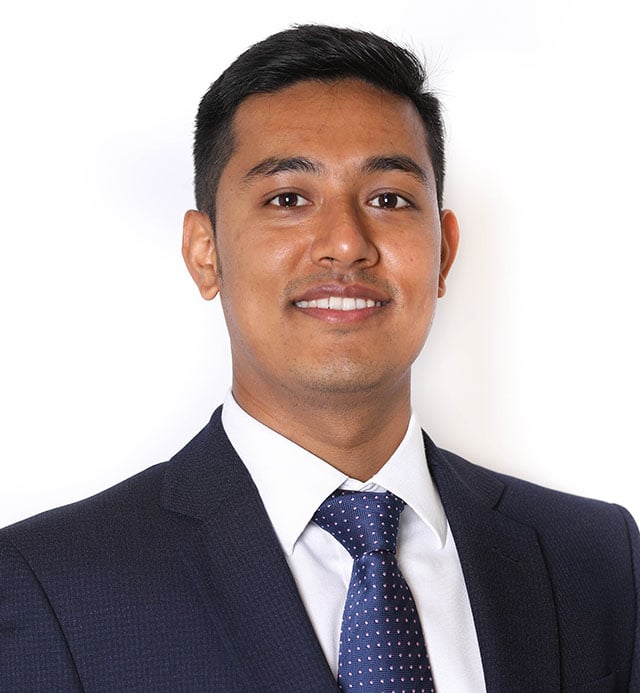Sumit
He/Him
Associate, London
- Why did you choose Analysis Group?
- Analysis Group offered an opportunity to work on interesting and complex cases in diverse industries, which would both challenge me and allow me to develop a broad range of skills. Also, the AG people I interacted with prior to and during my interview process were smart and kind, and had only positive things to say about the firm. They seemed like the type of people I would enjoy working with.
- What do you work on at AG?
- I work in litigation; my cases so far have been a mix of finance and competition. The work has been varied – some cases have involved a lot of data analysis, whereas others have involved qualitative work, where we have to review a number of legal and academic papers to learn about specific financial sectors and instruments.
- What do you enjoy most about your work? What do you find most challenging?
- I enjoy the variety and challenging nature of my work. For example, I’m currently working on two cases: One has required me to learn about how special purpose acquisition companies (SPACs) work, while the second involves international GDP calculation. This range keeps my day-to-day work exciting. It can also be challenging at times, because you have a short window in which to learn something completely new to you. Another challenging aspect is getting up to speed on AG practices and learning how tasks are carried out, such as the way exhibits have to look and the writing style for reports.
- How does life at AG compare to grad school?
- At AG you work on real-life cases that have substantial impact on our clients, whereas in grad school, the projects or assignments didn’t this sort of impact. This makes the work more meaningful. But one of the similarities for me is the way we approach the cases: We all work as a team, rely on each other’s expertise, and leverage each other’s strengths to achieve a common goal.
- What do you think of the case team dynamic?
- The case teams I’ve worked on so far have had a diverse set of individuals with different background and skillsets. I’ve been able to pick up both new technical skills and soft skills from a wide range of individuals. I’ve also had the opportunity to work with colleagues from different AG offices, such as Boston, New York, Paris, and Menlo Park – this is one of the things I’ve enjoyed most at AG.
- What is it like to work in your office? What is the culture there?
- The London office is relatively small compared to other AG offices, so there’s a personal feel that you get in a smaller office. You get to know and work with almost everyone. We often have lunches together as groups, which is very nice. But working with different offices reminds you that you work for a large international firm, and of all the additional support that comes with that.
- What do you think about AG’s collaborative culture? How does this benefit your work? Clients?
- The collaborative culture has been one of the key reasons behind my development and learning so far. All my colleagues have different strengths, so I’m able to learn something different from each of them. The collaborative culture helps us meet the tough deadlines, as each of us has a different background that we can utilize to meet our end goal and help the client.
- How do you find a suitable work/life balance?
- Analysis Group’s collaborative culture helps us manage our workload and maintain our work/life balance: Unless there’s urgent work to be done, the case managers understand that balance and try their best to ensure that we’re not working late.

